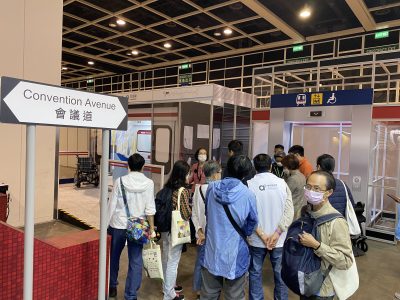Visit to the Gerontech and Innovation Expo



Facilitating older persons and caregivers to understand more about gerontechnology has been one of the ongoing Age-Friendly Practices implemented in Tuen Mun district in recent years. To increase the awareness and usage of gerontechnology, visits to the Gerontech and Innovation Expo (GIE) have been organised under the 「護老‧智幫您」 programme, with the support of the Tuen Mun District Coordinating Committee on Elderly Services of the Social Welfare Department, aiming to familiarize older persons with gerontechnology .
Being the largest public education event on gerontechnology in Hong Kong, the GIE showcases an array of innovative products and concepts that could enhance the well-being, self-reliance, independence and quality of life of older persons as well as provide essential support to their caregivers. Following the positive response received from a district-wide visit to GIE 2022 by older persons on 3 November last year, it has been decided to arrange a similar visit for GIE 2023, scheduled for November this year. It is hoped that with a greater understanding of gerontechnology, older persons would gain more confidence in trying out and embracing innovative technological products that meet their needs and thus enhance the effectiveness and quality of care.
Main target group: Older people in general
Other target group(s): Caregivers
Sector(s): Education, Health, Housing, Information and communication, Long-term care, Social protection
Other sector(s): Technology
Desired outcome for older people:
Learn, grow and make decisions